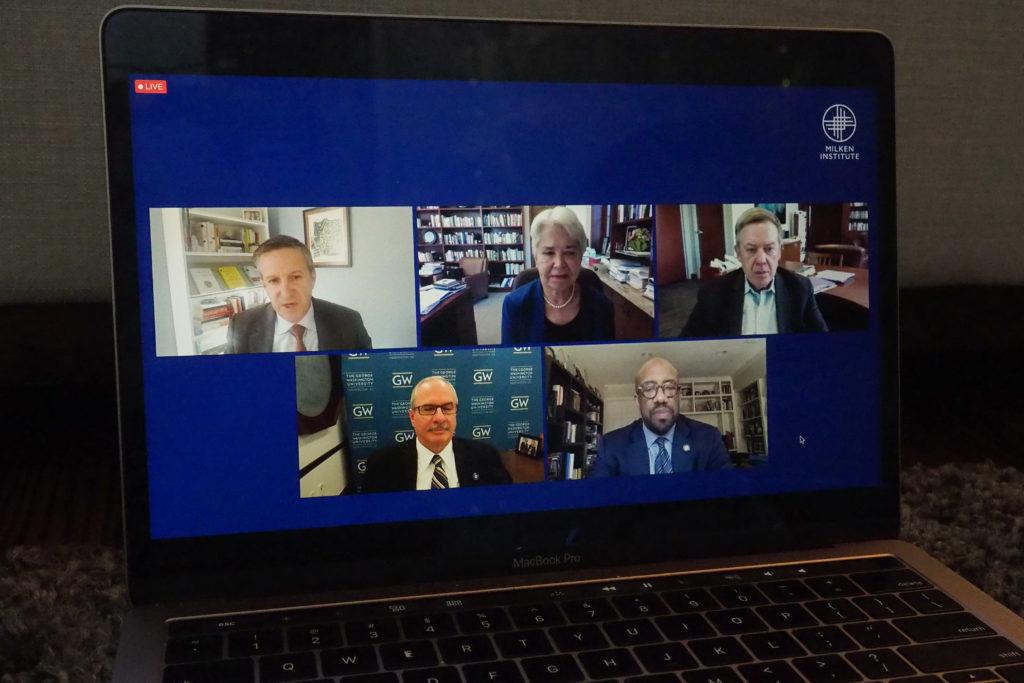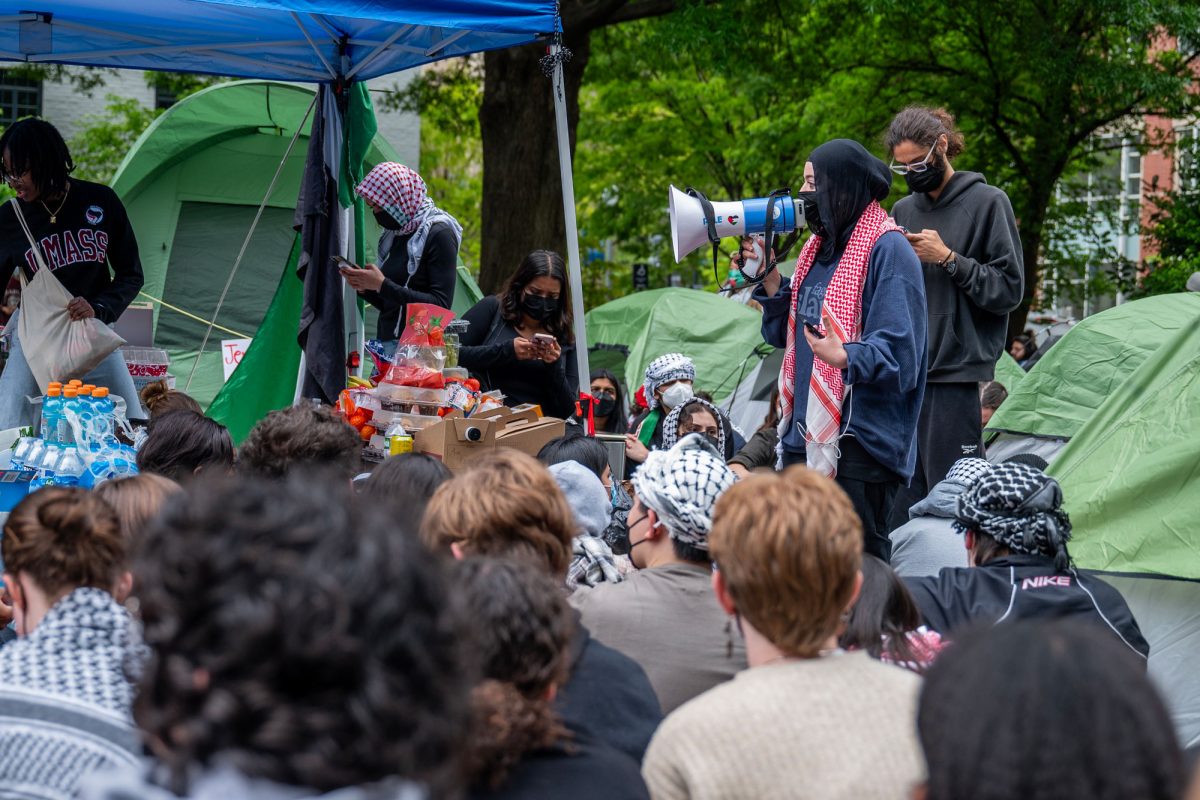University President Thomas LeBlanc joined a virtual panel of college presidents Wednesday on the disruption of higher education during the COVID-19 pandemic.
The Milken Institute – a nonpartisan economic think tank – hosted a virtual event titled “Ten Years in Ten Months: Accelerating the Disruption of Higher Education.” LeBlanc joined three other university presidents who shared their views on the short-term needs of higher education in the midst of the pandemic as well as the long-term risks and prospective opportunities.
Jeffrey Selingo, an author and journalist specializing in higher education, moderated the discussion.
Arizona State University President Michael Crow said to make remote learning more personable, colleges can employ four strategies – have faculty present their own intellectual material, make available as much human interaction as possible, use technology to allow people to form learning communities and bring an emotional connection to the classroom.
“Online doesn’t mean devoid of human contact,” Crow said. “It means available in a certain modality.”
LeBlanc spoke on the implications of the divergence from place-dependent education. Officials have worked to virtually replicate the advantages of being in D.C. and “Only at GW” experiences, he said.
“One of the things this will force us to do is to think very carefully about how to take advantage of being in the city and how to take advantage of the virtual world as well so we get the best of both worlds,” LeBlanc said.
LeBlanc said universities will need to rethink revenue streams so that enrollment and tuition are no longer the lifeblood of colleges in the future, which he said is currently a “broken business model of higher education.”
“Certainly here at GW we are looking at all possible opportunities for revenue, even with continuing education,” he said. “That is another form of tuition. So the idea that tuition won’t be a lifeblood, that’s probably a long way off.”
LeBlanc also referenced officials’ decision to reduce tuition by 10 percent for undergraduates not returning to campus during online instruction. He said the decision was not “entirely scientific” but represented a fair response to promote affordability.
LeBlanc said the University had many online programs prior to the pandemic, which were priced comparably to current virtual instruction.
Carol Christ, the chancellor for University of California, Berkeley, said the notion of “place elasticity” – the idea that people do not need to be in the same location for their entire undergraduate career – will likely continue in post-pandemic higher education.
Panelists also discussed topics like the role of universities in racial and socioeconomic injustices, as well as needed systematic change. Michael Sorrell, the president of Paul Quinn College, said universities are an active part of promoting societal change.
“We in higher education, and education in general, are going to need to take a more active role in repairing our democracy and repairing this idea of our societal tone and the common good,” Sorrell said. “I think it’s going to be interesting, as the institutions evolve, to see how we accomplish that because the way we are functioning now in society is not sustainable.”








